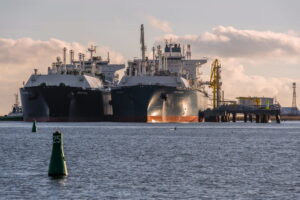All companies that use gas use Gaz-System’s transmission infrastructure as well. Therefore, an adequate fee should be added to the operator’s tariff. This would make the increase universal and small – writes Teresa Wójcik, editor at BiznesAlert.pl.
According to current forecasts, in 2018 the reloading capacity of the Lech Kaczyński LNG terminal in Świnoujście will be used at 60 percent. If critics believe this number is low, they should understand that its utilization rate will be among the highest in the world. In Europe the average capacity utilization of LNG terminals is 25 percent. The Terminal Gate in Rotterdam whose capacity is 12 bcm annually, which is twice as much as Lech Kaczyński’s, received a little over 2.2. bcm in 2016. The terminals in Italy have relatively the best utilization rate.
Tariffs for usage pay for operational costs
However, all of those terminals have been already paid for and are now earning pure profit. This means that even though they do not exploit their full potential, the tariffs for usage allow them to cover operational costs. Some have also discovered a new source of income in the form of fees for LNG re-export, e.g. terminals in Spain. The companies that will build the terminal on the Krk island and in Greece’s Alexandroupolis harbor are already looking for future clients and framework contracts to create a suitable order portfolio, that will guarantee profitability from the moment the facilities are commenced. Sometimes a terminal is operated by an energy company, so its costs are the firm’s problem. In Poland this pertains one state-owned company.
Private companies trade with Russian gas
Meanwhile private companies in Poland buy gas on Germany’s spot market. They did not enter into long-term contracts. This is a very market-based solution, but the gas is from Russia. It dominates the German market and has an attractive price. The 2016 financial statement published by Gazprom Germania proves that private companies from Poland which trade gas (not only on the Polish market) have become a noticeable partner. One of my interviewees, a CEO of such a private company (asked for anonymity), argued that this kind of import meets diversification standards, and the gas purchased on the German market „is a lot cheaper than the gas imported from Qatar and the USA to Świnoujście.”
Therefore, so far the leader on the Polish market – PGNiG bears all the costs of maintaining the terminal because it is its only client. If a different company imported LNG, its fees would cover a certain portion of the operating costs. However, it does not seem likely, e.g. if Fortum takes over from E-On a 46 percent package of Uniper, a German fuel company, it will become Gazprom’s partner (Uniper is a shareholder of the Nord Stream 2 project). It will then be able to provide its subsidiary in Poland, Fortum-Polska (previously Duon), gas from the East. Similar links probably connect other companies with suppliers of Russian gas.
More clients, lower costs
Already last year, the state-owned Gaz-System pointed out that the charges for services at the Świnoujście terminal may be the highest in Europe, which may be discouraging to clients. To counter this problem it was proposed to distribute the costs across gas market participants. The idea was called „socialization” of the terminal’s operating costs. PGNiG submitted a relevant draft of the proposition to the Energy Regulatory Office (URE) and the Ministry of State Treasury, which still existed back then. The goal was to distribute the costs across all parties that use the terminal. But there was still just one user.
The assumption was that the costs for using the terminal would be split across every user and the „socialization” was supposed to be compensation paid out by URE. A similar solution was previously used in the case of the electricity sector.
The President of URE supported the project as such, but also added that such a solution required a new bill. Additionally, there were concerns that it would increase the bills for the final consumers of natural gas.
Later, the project was changed. From then on „socialization” was supposed to mean that all companies that use gas also use Gaz-System’s transmission infrastructure. This is why a suitable fee would be added to the operator’s tariffs. This would make the charge universal and small. Determining the value of the fee would not be a big problem because the European Commission allows for a mechanism that offers similar compensation. At the end of the gas year, it would be calculated who owes how much to whom and transfers would be made. But this was two years ago, what is the current idea?
Today we know that the government is working on „a regulation that would socialize the costs of using the LNG terminal in Świnoujście.” Yesterday, PGNiG’s press office informed me that the institution responsible for the socialization of the terminal’s costs, including the talks with the European Commission, is the Ministry of Energy. One of PGNiG’s representatives said: „The LNG terminals in, among others, Greece, Spain and Italy use various forms of support. The distributing of the terminal’s costs in Lithuania offered very good commercial benefits.”
Not really believing in a utopia
As of 1 October this year we have a free gas market and the situation of private companies has changed. However, this does not mean that they will be interested in importing LNG via the Polish terminal. That is unless it will be significantly cheaper than the gas from Russia, which cannot be excluded. The problem would disappear on its own if the terminal’s full capacity would be utilized and if each company that buys LNG would pay the terminal its share. The „socialization” idea would become irrelevant. This is an optimistic hypothesis and a significant gas market participant believes that if the price is attractive, every amount of the blue fuel can be sold on the Polish market. However, one should not really believe in an all-too-optimistic utopia.








